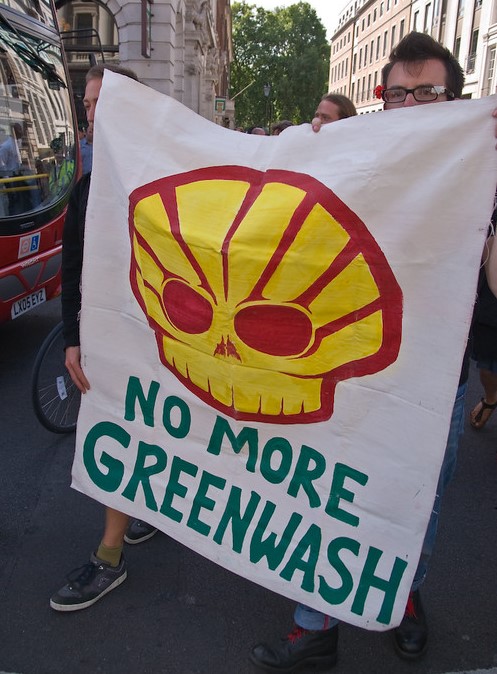Facts about fossil fuels - ahead of Shell's AGM
Submitted by Claire on Fri, 2023-05-19 12:12 This Tuesday, it's Shell's AGM in London. If you can, do come and join the protest:
This Tuesday, it's Shell's AGM in London. If you can, do come and join the protest:
They will be celebrating their obscene profits - £7.6 billion over the first three months of 2023, almost £1000 every second - and obscuring the truth about the impact on people and the planet with greenwash.
So lets get our facts straight about Shell and their corporate cronies:
1. We can't afford any new fossil fuel infrastructure
Climate scientists have been warning for years that we need to keep fossil fuels in the ground. In 2021, even the International Energy Agency did the maths and concluded there could be no new fossil fuel infrastructure. But fossil fuel companies and governments never got the memo. They continued drilling, building pipelines and exploiting new fossil fuel fields. Analysis last year found just eight oil and gas companies to be involved in over 200 expansion projects
2. Shell and other companies are making record-breaking profits because the rest of us are getting poorer
Last year, the West’s five largest oil and gas companies, Chevron, ExxonMobil, Shell, BP and TotalEnergies made $134 billion in excess profits, (profits in addition to what they would normally expect). These profits came from higher energy bills, taken from households and from businesses which then passed on the higher costs to consumers. The cost of living crisis in the UK is part of a wider global crisis caused in large part by energy companies profiteering from the war in Ukraine.
3. The UK's planned North Sea oil and gas expansion would be a climate disaster
The UK government is on the brink of approving Rosebank, a massive potential North Sea field. It has the potential to produce 500m barrels of oil, which when burned would emit as much CO2 as running 56 coal-fired power stations for a year. The UK's carbon budgets can't even accommodate the emissions from getting the oil out of the ground.
4. Fossil fuel expansion doesn't help workers or those of us struggling with the cost of living.
Can North Sea oil and gas help with UK energy bills? No - the vast majority of what will be produced is oil, not gas, and will be owned by the companies extracting it and exported. Longer explanation here.
But will it help the UK economy? Also no. The windfall tax ('energy profits levy') which Rishi Sunak brought in last year came with a giant loophole - a tax break for oil companies opening up new fields for drilling. For Rosebank, this would mean UK taxpayers handing back £3.75 billion.
A just transition is possible. Recent research by Platform and Friends of the Earth Scotland with oil and gas workers sets out their concerns about working conditions, fears for the future, and what they need for a just transition: making it easier for oil and gas workers to move into the renewable industry; ensuring safety, job security and fair pay across the energy industry; new public owned energy companies and a tax regime that works for the public good.
5. Greenwash enables destruction.
Companies like Shell and BP produce a barrage of advertising on social media and elsewhere, with prominent photos of wind turbines and solar panels. But in 2021 Shell invested just 1.5% of its total capital expenditure ($244 million out of £19.7 billion) in wind and solar.
So what makes up the rest of its so-called 'Renewables and Energy Solutions' expenditure ($2.4 billion in 2021)? Analysis by Global Witness revealed this included not just 'solutions' such as carbon capture and storage (CCS), hydrogen and carbon offset projects but also marketing and trading of fossil gas.
Government subsidies are also being diverted to false solutions. A recent leaflet produced by our trade union group sets out the facts behind the greenwash around carbon capture, hydrogen and biomass in the UK.
We have also increasingly seen the capture of UN climate negotiations by fossil fuel interests and consequent greenwash - a huge concern for this year's COP28 to be held in UAE. (more detail here)
Photo credit: Flickr user fotdmike


